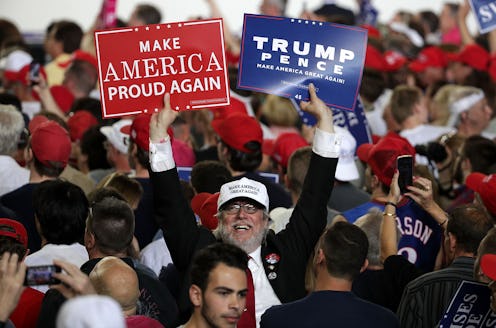
The 2016 presidential race had a polarizing effect on American social and political history, as almost every individual across the political spectrum had something to say about the main presidential rivals. That didn't end when the election did, though. A recent Pew study asserted that liberals don't want to be friends with Trump supporters.
During the campaign season, Democratic supporters were especially unnerved by the Republican Party's presidential candidate due to his statements on immigration, reproductive rights, women, and more. Now that his statements can become policy, the research looked into how one's personal political philosophy can affect their social relationships.
According to the Pew research, nearly half of liberal Democrats would not approve of a friendship if they found out a friend supported Trump. The study reported that 47 percent of liberal Democrats say that knowing their buddy supported Trump would place a "strain" on their friendship. For those who are not specifically "liberal," but are Democrats or lean Democrat, it drops to 35 percent who feel the same way.
Meanwhile, only 13 percent of Republicans say that if a friend supported Hillary Clinton, it would strain their relationship. But both Democrats and Republicans found one place to agree — the study found that 59 percent of Americans feel that it is "stressful and frustrating" to talk about President Trump with someone who has a different opinion of him.
The research also pointed to an often-discussed "bubble" that many believe liberals shroud themselves in: neatly-defined social circles where political disagreement from others is rare. Even shows like Saturday Night Live have comically mused about the infamous liberal bubble. This might explain why white, college-educated, liberal Democrats are so averse to having a friend who supports Trump.
A study from Pew last year asserted that 47 percent of Clinton backers didn't have any friends who supported Trump. This was in contrast with the 31 percent of Trump supporters who did not know any friend who supported Clinton.
While political homogeneity can be a comforting thing — people like to be around people who agree with them — it can carry a stifling effect on one's threshold for dissent by only exposing them to what they want to hear. Agreeing with the less-than-agreeable statements from Trump is not the goal here, but understanding why someone would support Trump could be a practical way to bridge the ever-widening political gap in American society.